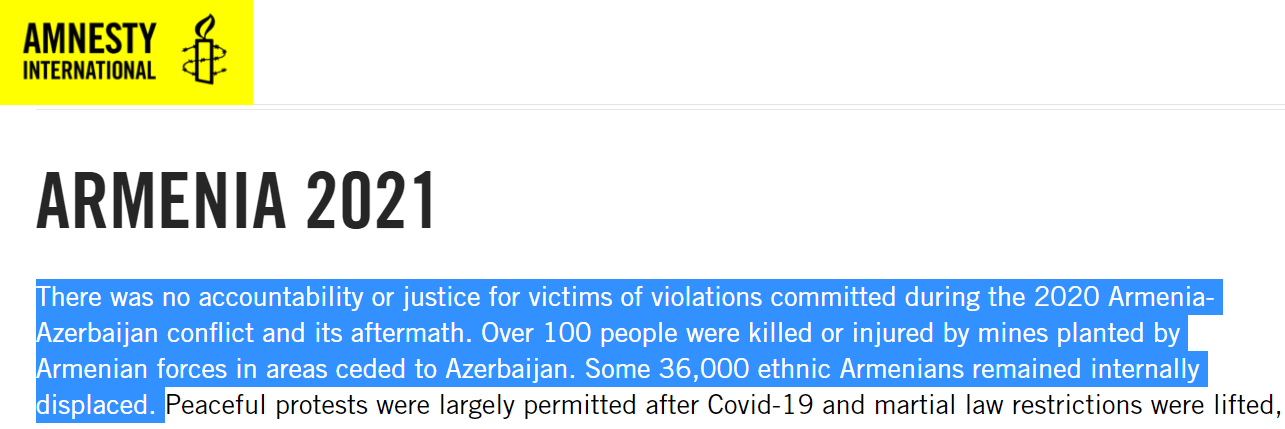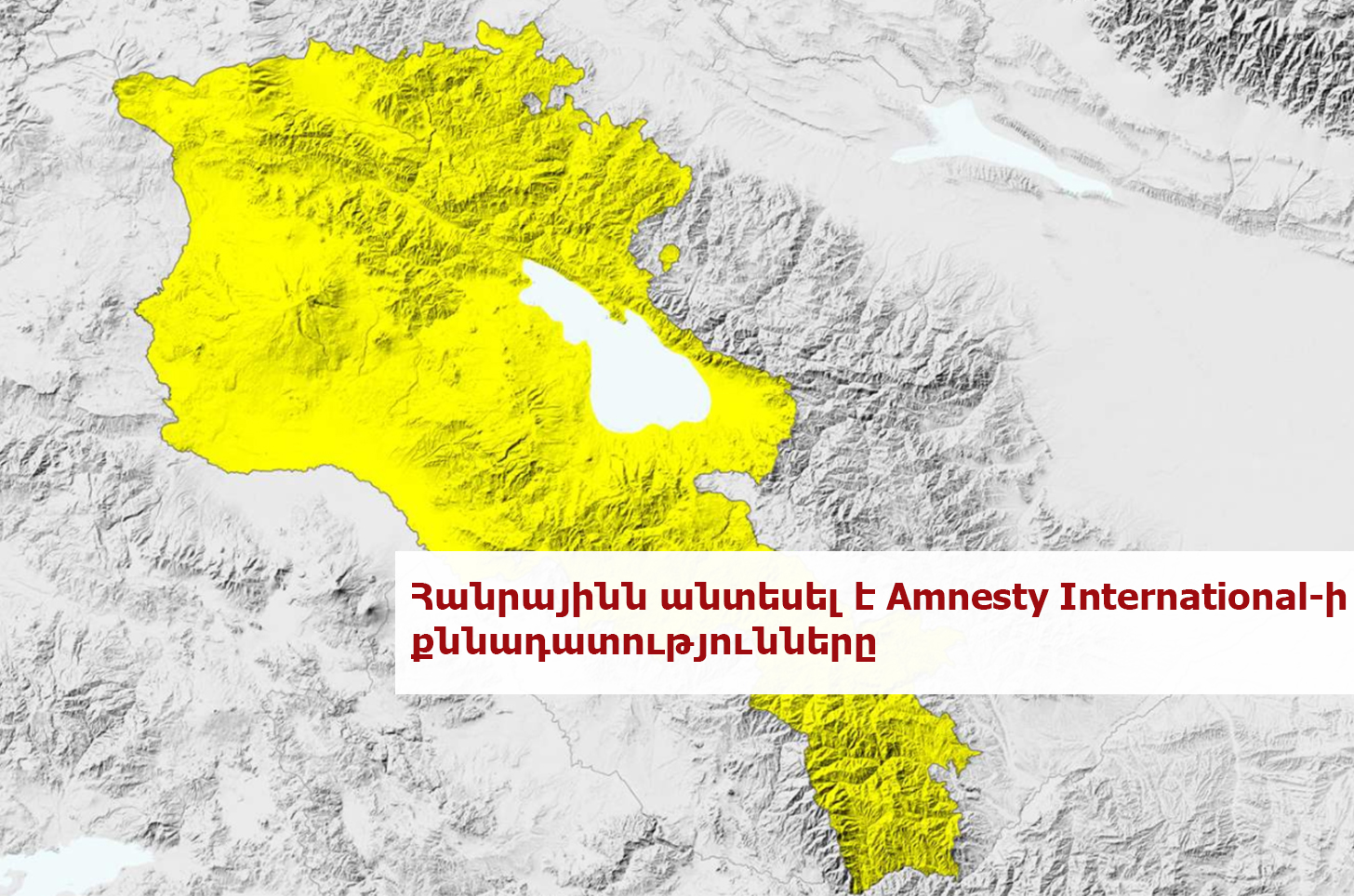On the March 30th broadcast (1 2 3 4 5) of the Public Television “Lurer,” reference was made to Amnesty International’s annual report “The State of Human Rights in the World.” The reference, however, was very short and one-sided. The host only mentioned the part of the report where the organization referred to the Armenian captives held in Baku․
“The section on Azerbaijan refers to Armenian prisoners of war and the violations of their rights. The authors of the report emphasize that the Council of Europe warned in September about the unacceptable conditions of holding prisoners. In November, the UN Committee on Economic, Social and Cultural Rights called on Baku to conduct an effective investigation into all cases of violations of international law during the war,” said the host.
“Lurer” thus presented only a part of Amnesty International’s annual report, which gives a limited idea of the human rights issues in Armenia and Azerbaijan and the real assessment of the organization.
The news release does not mention that neither Azerbaijan nor Armenia has made any progress in investigating the war crimes and other violations of international humanitarian law during the 44-day war.
The report also claims that more than 100 people have been killed in landmines planted by the Armenian side in the territories under Azerbaijani control since the last war. At the same time, there is a quote from the words of the President of the Council of Europe that Yerevan has provided Baku with all the maps of the minefields, although Azerbaijan disputes their accuracy.
“No responsibility or justice has been taken for the 2020 Armenian-Azerbaijani conflict and the violations that have taken place since then. More than 100 people were killed or wounded as a result of mines planted by the Armenian side in the territories passed to Azerbaijan. About 36,000 ethnic Armenians continue to be displaced,” the report said, which, however, was again not mentioned on air.

The situation inside Armenia
It is important that the international organization also covered a number of details of the situation inside Armenia, which were again excluded from the Public Broadcasting. In particular, there is an assertion that political tensions have persisted throughout the year and that freedom of speech continues to be unjustly restricted through the efforts of the authorities.
“The government has initiated several legislative changes, which restrict the independent press and other critical speech. In March [2021], the National Assembly raised the upper limit of fines for insult and defamation to 6 million AMD (about $12,000). In August, another package of legislative changes criminalized insulting public figures, making up to three months in prison possible if the insult was repeated. Under the new law, police launched a criminal case against a Facebook user in September for insulting the prime minister in the comments section of a photo of him,” Amnesty International said in a statement.

The organization also spoke about the ongoing criminal prosecution against Yezidi human rights activist Sashik Sultanyan, calling it fabricated, as well as claiming that the Prosecutor General’s Office of Armenia and other law enforcement agencies failed to conduct effective investigations into a number of NGOs and media outlets after the 2020 war in connection with the attacks. Threats and attacks against the offices of Radio Free Europe/Radio Liberty and the Open Society Foundations were singled out.
Women’s rights
According to Amnesty International, during the COVID-19 pandemic, women in Armenia continued to suffer from higher levels of domestic violence, while access to services and protection of their rights remained insufficient.
Thus, the Public Television’s news program partially or incompletely presented the report of the authoritative organization. Criticism of the Armenian authorities and a number of human rights issues in Armenia have been excluded from the air.
Ophelia Simonyan







